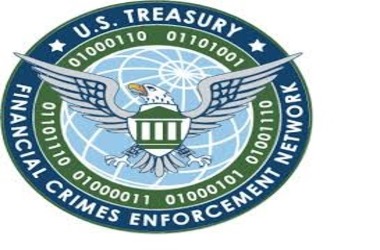 As the demand and mainstream adoption of cryptocurrencies are growing at an expedited pace, regulators are closely watching the sector.
As the demand and mainstream adoption of cryptocurrencies are growing at an expedited pace, regulators are closely watching the sector.
In this regard, Steven Mnuchin, the US Treasury Secretary, has disclosed that a new guideline that could impact users of cryptocurrency wallets that have been categorized as “self-custody” or “covered” wallets.
In the media release, Financial Crimes Enforcement Network (FinCEN), the division functioning under the US Treasury, has blamed that there are “significant national security imperatives” that vindicates the implementation of the latest rule.
It will necessitate that dealings are documented if it is higher than $3,000, with both withdrawals and deposits taken into consideration.
The latest rule is applicable to digital or virtual asset service providers (VASPs), implying centralized exchanges and cryptocurrency custodial service providers will come under the rule.
The aforesaid institutions will have to maintain documents pertaining to name and actual address of the person or entity that is recipient of the transfer.
Furthermore, crypto-linked service providers have to inform FinCEN whenever dealings breaches $10,000. The regulator informs as follows:
“US authorities have found that malign actors are increasingly using CVC to facilitate international terrorist financing, weapons proliferation, sanctions evasion, and transnational money laundering, as well as to buy and sell controlled substances (…).”
The regulation is aimed to minimize aforesaid illegal activities, as portion of a range of initiatives that could also pave way for a transformation in the “travel rule.” The transformation could necessitate additional data on global dealings surpassing $250.
FinCEN is proposing a rule on certain digital currencies that will protect national security, assist law enforcement and increase transparency while minimizing the impact on responsible innovation. https://t.co/ImE1B1jVRp
— Steven Mnuchin (@stevenmnuchin1) December 18, 2020
Jake Chervinsky, General Counsel for Compound Finance, has pointed out that the latest law “could have been much worse”. One of the worries mentioned about the law is that cryptocurrency exchange should necessarily provide details of every transaction.
5/ Let’s look on the bright side for a minute.
This doesn’t require KYC for every transaction with a non-custodial wallet. It isn’t an outright ban on self-custody. It doesn’t prohibit the act of using a permissionless network.
It really — REALLY — could have been much worse.
— Jake Chervinsky (@jchervinsky) December 19, 2020
Brian Armstrong, CEO of Coinbase, has categorized the initiative as a “rush rule.” Furthermore, he had underlined that the rule would pave way for shortcomings associated with transfers carried out to smart contracts in the decentralized finance (DeFi) industry and other apps.
Chervinsky further states that regulation has failed in attaining “its intended goals” and feels that there is no ground in FinCEN’s argument about illegal cryptocurrency dealings. The attorney for Compound Finance trusts that clients will be negatively impacted. The latest law will corner them to shell out additional fees while making wallet withdrawals.
US Treasury necessitates identifying wallet owner and it is usually a portion of data provided by user while setting up an account with a cryptocurrency exchange. Hence, the authorities will not require any fresh info to carry out scrutiny.
Chervinsky is worried that the US citizens will no longer have any financial privacy with such regulation. It also points out that the regulation is “ambiguous and vague” as there is no way to substantiate that a particular private key is owned by a person or entity. The attorney finished his argument by stating that the law has taken a wrong course:
“Put this together & you have the definition of bad regulation. The rule would impose huge burdens on VASPs, their customers, & society at large, perhaps infringing constitutional rights, without conveying any benefit to government in general or law enforcement in particular.”








